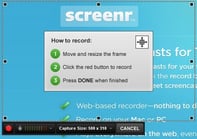Published on
Wondering About Wikis?

In this series, instructional design guru Connie Malamed discusses a few innovative approaches to taking learning on the web to appeal to different learning styles—Screenr for visual learners, podcasts for auditory learners and wikis for those who prefer text. In this last interview in the series of three, we discuss Wikis.
What is a wiki?
A wiki is a website that allows users to collaboratively create, add and edit web page content. Although the most well-known example is Wikipedia, wikis are usually centered on one subject or domain, though it may be a large domain, such as learning technologies.
Wikis are a way to document and grow an organization’s knowledge around a particular content area, be it best practices in a particular field or how to use a specific piece of software. Some organizations allow any registered user to contribute; others limit contributors to a particular department or group or to experts.
The beauty of the wiki and Web 2.0 in general, is that it improves as more people use it. Wikis are based on the idea that within any enterprise, a great deal of knowledge exists among its members. Sharing this knowledge and information can raise the organization’s intelligence level, be it a university, an association, a company or a community of practice.
What are a few major advantages to using wikis?
One main advantage to using a wiki is that the software is inexpensive or free. Although it may require an IT person to install and maintain the wiki, no special skills are needed to write and edit the wiki.
Another advantage is that wikis can be applied to just about any content area, and contributors create content independently of each other, so that multiple people can work on the site at the same time.
Finally, wikis are an effective way to gather knowledge from experts in an organization that may not get documented in any other way. People who work on opposite sides of the world can contribute as well as collaborate.
Do you have any wisdom to share with people looking to start wikis of their own for their organization or institution?
Think of your wiki as a way to build a community of people with a similar interest or expertise. Start with a small group and grow it into a community. For example, wikis typically have a history page that lists the original contributor and those who have added or made revisions. This type of open collaboration can build important relationships in any organization.
It’s important that information in the wiki is easily accessible. For example, suppose an organization rolls out new software that novice users are finding difficult to use. Power users of that software could contribute tips and guidance on various software procedures through the wiki. The goal would be for novice users to access the wiki on their organization’s intranet, search for the task and quickly find the answer.
Wiki experts recommend setting up guidelines so everyone understands the goal of the wiki. Also, identify who will be allowed to create content. Will it be everyone in the organization? Or will it be approved individuals. Also, be sure to make sure there is a wiki editor who can ensure the content is appropriate and fits within the guidelines.
Author Perspective: Business


